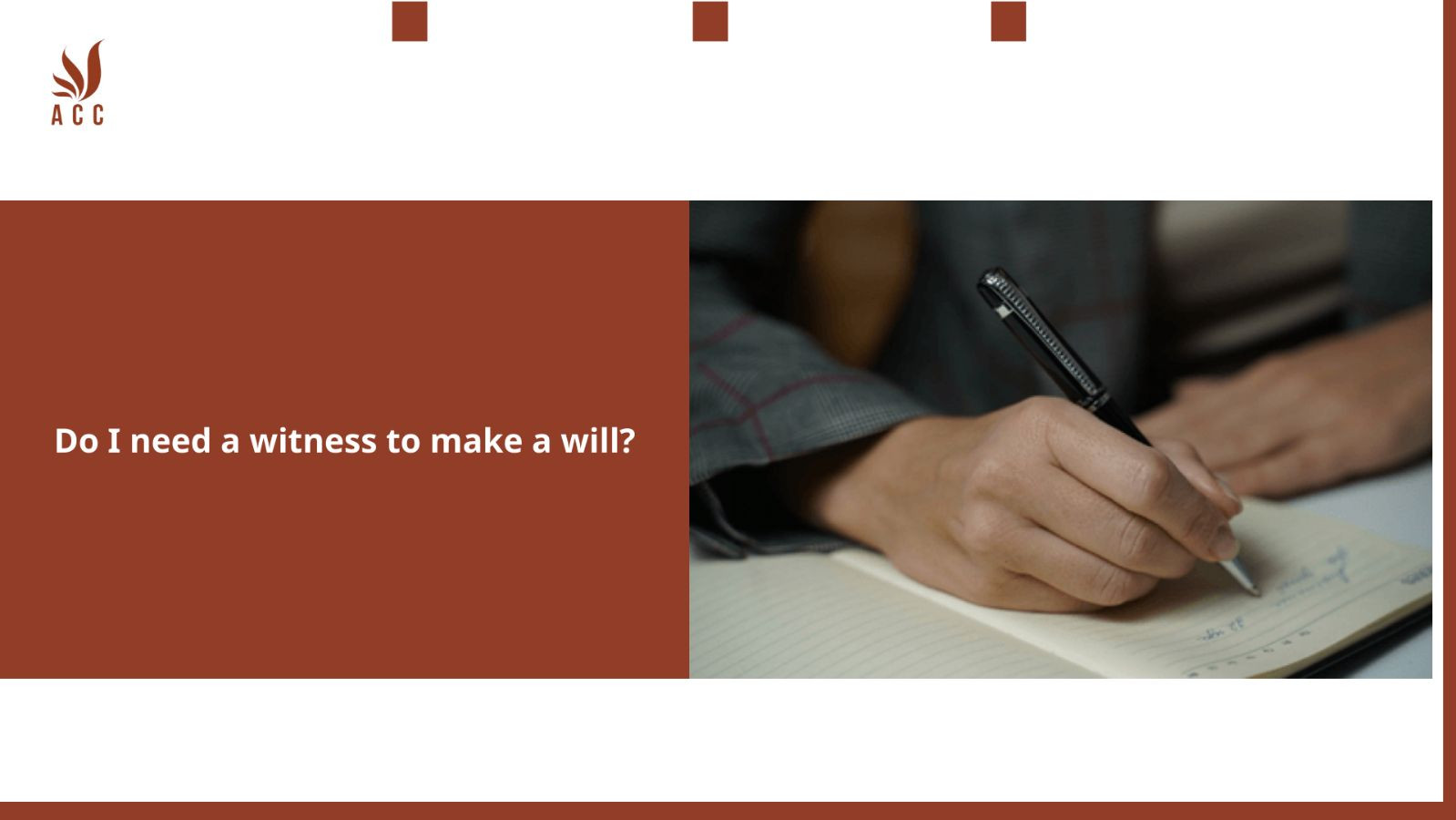The requirement for witnesses when making a will depends on the laws of your jurisdiction. In many jurisdictions, having witnesses is a common and important legal requirement to ensure the validity of a will. Here are some key points to consider:
1. Witness Requirement:
In many jurisdictions, a will must be witnessed by at least two competent individuals who are not beneficiaries under the will. These witnesses are often required to observe the testator (the person making the will) sign the document and confirm the testator's identity and capacity at the time of signing.

2. Purpose of Witnesses:
Witnesses serve several important purposes in the will-making process:
- They provide independent verification that the testator voluntarily signed the will.
- They can attest to the testator's capacity and mental state at the time of signing.
- They help prevent fraud or undue influence in the creation of the will.
3. Legal Formalities:
Failure to adhere to the legal formalities required in your jurisdiction, such as having witnesses when they are mandated, can lead to challenges to the validity of the will.
4. Holographic Wills:
In some jurisdictions, a holographic will, which is entirely handwritten and signed by the testator but not witnessed, may be accepted as a valid will. However, not all jurisdictions recognize holographic wills, and the rules governing their validity can vary.
5. Consult with an Attorney:
To ensure that your will is valid and complies with the laws of your jurisdiction, it is advisable to consult with an attorney experienced in estate planning and wills. An attorney can guide you through the legal requirements and help you create a will that accurately reflects your wishes.
6. When using ACC Law Firm's testament, entrepreneurs will receive
7. Q&a
Q1: Do I need a witness to make a will?
In most jurisdictions, it is a legal requirement to have witnesses present when making a will. The number of witnesses required may vary depending on the jurisdiction, but it is typically between two to three witnesses. The purpose of having witnesses is to ensure the validity and authenticity of the will, as they can attest to the testator's intent and capacity at the time of signing.
Q2: What is the role of witnesses in making a will?
The role of witnesses in making a will is to observe the testator (the person making the will) sign the document and confirm that they are of sound mind and not under any undue influence or coercion. Witnesses are typically impartial individuals who are not beneficiaries or heirs named in the will. Their presence and signature on the will help validate its authenticity and can serve as evidence in case of any future disputes.
Q3: Can a family member be a witness to my will?
In many jurisdictions, it is generally advised to avoid having family members as witnesses to your will. This is because having an impartial witness who is not a beneficiary or heir named in the will helps maintain the integrity and validity of the document. However, the specific laws regarding who can act as a witness may vary depending on the jurisdiction. It is advisable to consult the laws of your specific jurisdiction or seek legal advice for guidance on this matter.
Q4: What happens if I do not have witnesses for my will?
If you do not have witnesses for your will, it may not be considered valid or enforceable. The absence of witnesses can raise doubts about the authenticity of the will and may lead to potential challenges or disputes regarding its validity. It is important to ensure that you comply with the legal requirements of your jurisdiction to ensure the validity and effectiveness of your will.
Nội dung bài viết:






Bình luận